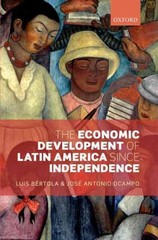Question
QUESTION: Whathaschangedand madeChinese acquisitionssuccessful, and what dangers the current trend brings.? What a differencefiveyears makes. Ina 2017 article,The Economistdescribed Chinese acquisitions abroad as mistimed,nave,and often
QUESTION:
Whathaschangedand madeChinese acquisitionssuccessful, and what dangers the current trend brings.?
What a differencefiveyears makes. Ina 2017 article,The Economistdescribed Chinese acquisitions abroad as mistimed,nave,and often random(see the link to the article below). First, let's discussthe mistimedinvestments.Chinese conglomerates have tried to gobbleraw material producing businesses all around the world. That makes a lot of senseasChinese producers consume a lot of it. However, the largest volumes of this kind of investment took place in the period between 2010 and 2014, when commodities were at their peak of demandand commodity producing firms severely overpriced.
The second category is an investment in trophy assets with very little industrial logic, such as football clubs, luxury hotels,oryacht manufacturers. These investments might make sense, yet it is most Chinese state-owned conglomerates who pursue them, and they don't provide any sensible synergies (they do, however, provide diversification effects).
The third category of deals is the least represented, and they consist of investments which make sense on paper, but their success is mostly random. The article mentions the acquisition of Volvo as a success, the acquisition of Motorolanot so much. In both cases,the acquirer was, however, a company active in the industry.
Fast forward to 2021 and the perceptionof Chinese investors as nave and inexperienced is gone. In another article fromThe Economist(again, providedto you in the link below) describes Chinese investors as surprisingly astute. Gone is the drive to buy trophy assets,China hasinsteademerged astheworld's leader in FDI through a very high number of smaller, well-thought-out deals,which mostly concentrate on technology.
Add the factthat China has moved from catching up with the developed world in some technologies(most notably payment technologies, sharing economy,and face recognition)and the change is still moreimpressive.
The Economist. (2017) 'Chinese companies' weak record on foreign deals: Overpaying for commodities and trophy assets has become the norm', The Economist, 8 June. Full article here.
The Economist. (2021)'China Inc's new inconspicuous expansion:Chinese companies are adapting to a more hostile global climateand thriving',The Economist,17July. Full article here.
Step by Step Solution
There are 3 Steps involved in it
Step: 1

Get Instant Access to Expert-Tailored Solutions
See step-by-step solutions with expert insights and AI powered tools for academic success
Step: 2

Step: 3

Ace Your Homework with AI
Get the answers you need in no time with our AI-driven, step-by-step assistance
Get Started


